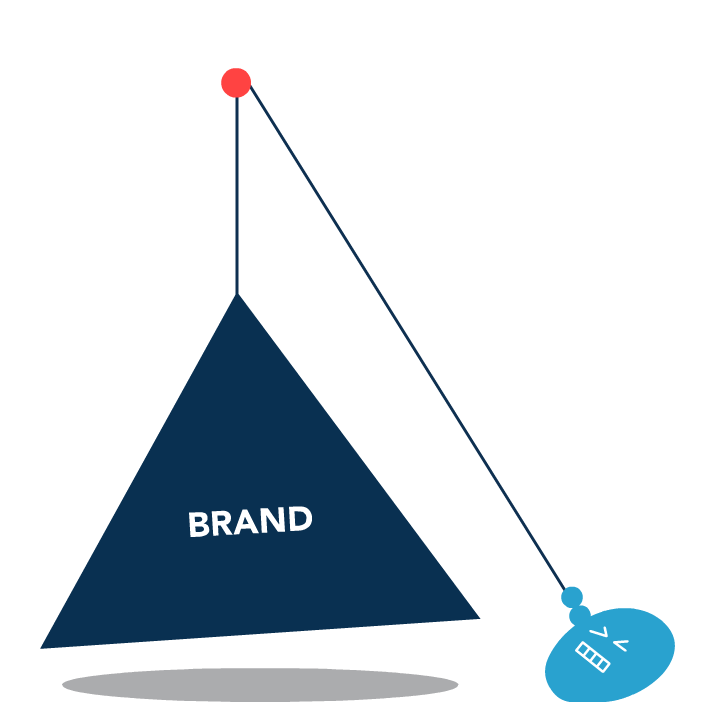Marketplace on Magento
Creating a marketplace with Magento is the development of an online trading platform where sellers will place their goods, and customers will choose the best offers for prices and other characteristics. The main difference between the development of Magento marketplaces and ordinary online stores is that the owners of the marketplaces do not usually sell anything themselves. They only attract sellers to their website, promote products and develop the website in every possible way to make it more convenient for visitors.
What is the development of a marketplace on Magento?
Magento marketplace integration implies the creation of a platform where it should be easy for sellers and buyers to find each other and establish interaction. Conventionally, such websites can be divided into two main categories: universal and niche. The Magento universal marketplace in terms of the range of products resembles a large supermarket where you can buy almost everything. Their niche counterparts specialize only in specific categories of goods, such as auto parts, electrical goods, plumbing, food, stationery, etc. Large and small companies, or even individuals, can act as sellers.
If you are interested in the difference between the development of a marketplace in Magento and the creation of an online store, then it all comes down to three points:
- On the virtual showcase of such a website, after development, not only goods of different brands but also different sellers are presented. For example, two different sellers can sell Adidas clothing within the same marketplace.
- Most online stores also have physical outlets that you can visit. Marketplaces usually have only pick-up points.
- Marketplaces have a wider geography and audience, they can be international.
When ordering the development of Magento with a marketplace, you need to be prepared that your project will become large-scale in the future. The lion's share of the world's capital turnover falls on the share of such websites. The most famous Magento marketplaces, such as Amazon and eBay, sell billions of dollars worth of goods every year. If you are not ready for such a development of events and think that you cannot cope with such a scale, then it is better to choose the development of a simple online store. By the way, it also has great prospects for growth. After development, it can grow from an online store to a marketplace.
The development of the Magento e-commerce marketplace is being ordered more and more often, its popularity is growing rapidly. Oddly enough, the popularity is linked to the COVID-19 pandemic. Due to the pandemic, people rarely visit regular stores and supermarkets, shifting the focus toward online shopping. The second factor, due to which the popularity has developed, is the rapid development of new digital technologies. Today, people are increasingly inclined to trade online, because it is more convenient and practical in every respect, and today almost everyone has computers and smartphones.
Magento marketplace integration implies that dozens or even hundreds of different sellers will trade on the website, and they will be forced to compete closely with each other. It has long been known that close competition generates very advantageous offers for customers. Sellers have to come up with various promotions, discounts, and bonus programs in order to attract customers. Sometimes it comes to the point that the customer is allowed to offer his price, after which the seller can accept or reject such an offer.
How is the development of a marketplace on Magento different?
The development of a Magento commerce marketplace involves the use of a content management system (CMS) for online stores and other online trading platforms. This system occupies a leading position in the world, so various developers are beginning to actively master it. There are paid and free versions of Magento. The free assembly is an open-source development with a large and friendly community that is actively developing. The paid version is owned by eBay — the most famous online auction in the world.
The development of a marketplace on Magento 2 has a number of advantages and additional features:
- You can set different attributes and properties for products, group them into sets, and sort them by various parameters, such as color, size, etc.
- In Magento, it is possible to develop product filtering by attributes that are defined by the administrator. Different positions on the virtual storefront can be compared with each other to understand the differences.
- Using the Magento admin panel, you can control online stores that are located on different domains and translated into different languages. You can customize their appearance by choosing ready-made templates.
- After the development of the marketplace on Magento, the possibility of working with different currencies opens up. Thanks to this feature, it will be easier to promote the marketplace in different countries and regions.
- Sellers who don't want to manually price their items are in for a nice surprise. In Magento, after development, you can formulate pricing rules, after which the cost of new positions will be determined automatically.
- Magento will provide reports on sales, tagged products, reviews, etc.
- Magento supports different payment and delivery methods, including to different addresses.
- Close communication with customers. Magento will allow you to contact them in many ways, including email, messengers, product comments, etc.
The advantages of developing a Magento 2 marketplace from the point of view of the developer are obvious because this is a CMS with a large margin of safety, which will withstand heavy loads and will not “fall apart” at the most inopportune moment. It is used by many large online stores and marketplaces because it is considered reliable. However, it cannot be called intuitive and simple, because the entry threshold is quite high.
Developing a marketplace on Magento is a difficult task. The problem is exacerbated by the fact that this CMS is the most difficult to learn from the point of view of a marketplace administrator who has no experience. However, its complexity is explained by the fact that it is the best. Having mastered this virtual control panel, you can be sure that you will have full control over the marketplace. Magento marketplace developer Brander will help you figure it all out. Moreover, after the development of the marketplace, our team will provide technical support, within which assistance in managing the CMS is also possible.











